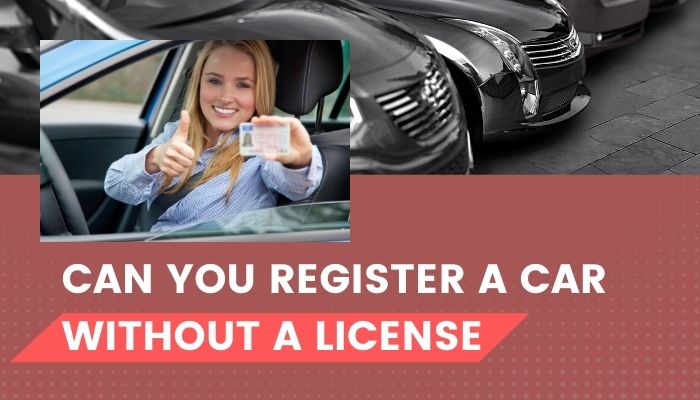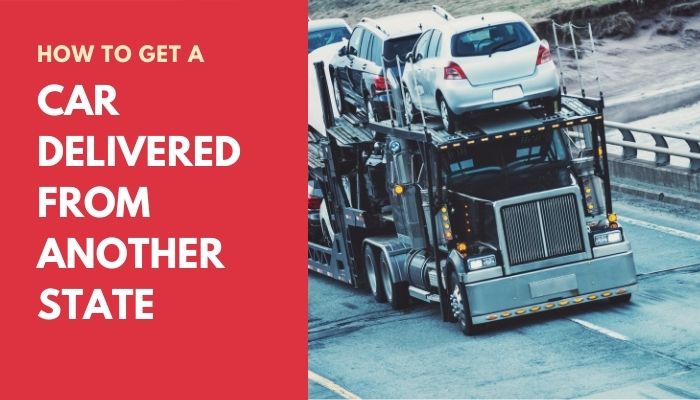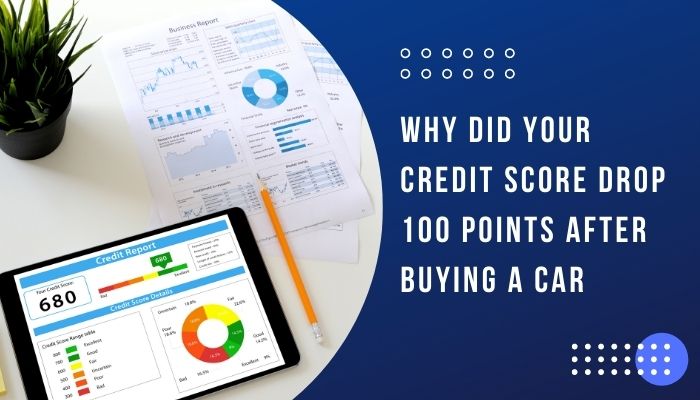How to Buy a Car from a Private Seller with Cash?
One of the best ways to get a used car at a bargain price is to buy from a private seller. Assuredly, the seller isn’t selling the car to make a profit. All they want is to get rid of the car and get some cash in the process. However, you have to be careful not to get scammed. In short, you should have a good understanding of how to buy a car from a private seller with cash.
You should be ready to handle the paperwork that comes with the execution of the deal. Besides, the car might not have a warranty over it, exposing you to expenses related to future repairs and maintenance. If you’re ready to take the risk by purchasing a car from a private seller with cash, here are some tips to help you execute the deal:
How to Buy a Car from a Private Seller with Cash?
1. Research Cars for Sale in Your Area
It can be hard to tell which private seller has a car for sale. That’s because private sellers do not own yards for you to visit and select one of the vehicles. It makes sense to research platforms where they could be selling cars. You can check out local websites or private sale inventory services like Craigslist or Autotrader. Local classified ads may also contain vehicles on sale.
If you want to know how to buy a car from a private seller with cash, learn to compare the seller’s price with others via websites with similar services. You want to be sure that you’re getting value for money by closing the deal. With a good understanding of the fair market value of different car makes and models, you will know whether or not the seller’s price is reasonable. You can then decide if you’ll buy that particular vehicle.
2. Get the Vehicle’s History Report
You can get the vehicle’s history report from specialized sites after paying anything between $10 and $40. The information can alert you about any potential problems with the car. With the vehicle identification number (VIN), you can carry out a free history check from an online site such as AutoCheck and Carfax. The following is some of the information you will get after a VIN check:
- Any title blemishes
- Previous owners
- Vehicle maintenance history
- Existing liens on the vehicle
- Accidents
- History of title or odometer fraud
- Flood damage
- Lemon status
- And airbag deployments
However, not everything about the car may appear in the history report. Therefore, you shouldn’t wholly rely on the history report for everything you should know about the vehicle. That means pressing on for a little bit more information to corroborate the history report. You can find the VIN of a car:
- on the dashboard on the driver’s side
- inside the door jamb on the driver’s side
- under the hood just before the engine
- in a rear-wheel well
- or under the spare tire
3. Ask for the Vehicle’s Service Records
If the seller bought the car from a dealership, they likely adhered to the manufacturer’s recommended regular maintenance schedule. Ideally, the seller should show you the vehicle’s maintenance records, so ask for them. From the documents, you can tell how well the seller maintained the car when they owned it. If the seller doesn’t have the maintenance records, look for another way to get the information.
4. Ascertain That the Seller Is the Owner
The surest way to know if the car belongs to the seller is to check the title. Of course, when you buy the vehicle, you’ll register the title in your name. From the title, you’ll not only ascertain the vehicle’s ownership but also know if the owner acquired the car through financing and hasn’t finished making the payments. In that case, the seller isn’t the vehicle’s registered owner and cannot sell it to you. If you go ahead and buy the car, the financing company can repossess it from you because of the existing lien.
When purchasing a car from a private seller, ask for the title listing them as the owner. Ideally, the car title shouldn’t list the vehicle’s owners’ financing company. If the seller is open enough to show you documentation for lien pay-off payment, verify it by calling the financing company directly. The following are the potential title problems:
- Lemon/Factory Buyback: This will show up if the car has previously been considered a lemon. If that’s a problem for you, don’t buy the vehicle.
- Salvage Titles: With that, the vehicle has previously been certified as destroyed by an insurance company. Most likely, it once was in an accident that necessitated more repairs than its worth. The car might have severe underlying problems like extensive corrosion or flood damage.
- Rebuilt: A title could also indicate that you have a rebuilt car, meaning that it was once a total loss to the owner necessitating reworking by an authorized rebuilder. Ideally, a rebuilt car should cost less than those that have remained intact over their lifetimes.
5. Ask Some Pointed Questions
A vehicle history search may not yield all the information you need to decide whether or not you should buy the vehicle. It helps to ask the seller questions on aspects that seem unclear in the history report. The following are some of the questions you can ask:
- Why are you selling the car?: The reason for the sale can be anything. Perhaps it can no longer carry the entire family, or the kids no longer live at home. Sometimes the seller wants a newer, better car. The seller should provide a convincing reason without which you can conclude that they’re trying to hide something.
- Are you the original Owner?: Ideally, the answer should be yes to help you know how well the car is maintained. Otherwise, you could end up purchasing a vehicle that’s near the end of its life.
- Any history of an accident?: The history report may not show everything about the car. Find that out from the seller. Besides, you can compare the seller’s information with the contents of its history report to see if it checks out.
- Does the car have any liens on it?: A creditor may attach a lien to a vehicle if the owner owes them money. A lien may result from unpaid car financing or a loan financed using the car as collateral.
- Any recalls on the car?: A recall from a manufacturer could be due to a fault that necessitates repairs. If the seller answers in the affirmative, check if the manufacturer did all the necessary repairs. The National Highway Traffic Safety Administration (NHTSA) has information on car search recalls, so check with them.
- What’s the car’s current mileage?: From the answer to this question, you can quickly tell if the vehicle’s mileage is too high or too low for its age. Any discrepancy should raise a red flag. So, don’t hesitate to ask questions.
- What major repairs have you done on the car?: Possibly, the vehicle underwent major repairs without necessarily being in an accident. It could have a new engine or transmission, which is essential information.
6. Test-Drive the Car
One of the surest ways to gauge the type of car you’re about to buy is to test-drive it. However, before getting behind the wheel with a stranger seated in the passenger’s seat, ask for their photo ID and take a photo of it. For safety reasons, could you send it to a friend in an email? You can never tell people’s intentions.
The seller needs to provide proof of insurance. Driving an uninsured car with a third-party inside could expose you to a suit if you get involved in an accident. If you’re a first-time car buyer, you might not have insurance. The following are some of the things to inspect or test during the test drive:
- Brakes
- Air conditioner
- Heater
- Cruise control
- Power steering
- All windows and locks
- Highway performance
- Headlights, reverse lights, brake lights, and signals
- Stop-and-go performance
7. Get the Vehicle Inspected
It would help if you didn’t take the private seller’s word for the truth. With a comprehensive inspection by an independent party, you can know the vehicle’s actual condition. You can also ascertain if the seller’s maintenance records reflect the actual status of the car. A comprehensive inspection would alert you if the vehicle had an accident that doesn’t appear in any report or has potential mechanical issues.
If you opt for a pre-purchase inspection, you should be ready to pay anything between $100 and $200. In the end, that cost is worth it if the inspection report provides the vehicle’s tur condition. It can help you decide whether or not you want to go ahead and buy the car. Even if you withdrew from the deal, the report would save you much more than the small cost.
A pre-purchase inspection usually looks at the following:
- Brakes
- Lights
- Suspension
- Frame
- Tires
- Glass
- Battery
- Fluids
- Belts
- Hoses
- Radiator
- Filters
- Exterior surface
- Body condition
- Computerized engine analysis
8. Negotiate the Sale and Close the Deal
After going through all the steps above, you’ll have an idea if the price of the vehicle provides value for money. If it looks too expensive, use the information you’ve gathered as a bargaining chip for a better deal. Once you agree on the agreement, the seller should sign off the vehicle’s title to you. Where the seller owes money to a lender, write a check to the financing company to release the vehicle’s title. Would you say you have no idea how to buy a car from a private seller with cash?
9. Secure Insurance for the Vehicle
Before driving off with the car, secure auto insurance; that way, you can ensure that you have all the protection you need for yourself and your third parties. Most states require vehicle owners to have mandatory liability insurance coverage. So, make sure you secure it. Suppose you have car insurance on a different vehicle. In that case, you might enjoy a grace period before obtaining coverage for your car. In some cases, you’ll get up to 30 days before insuring the new vehicle. Thankfully, you can secure coverage over the phone or online for most major carriers.
10. Register the Vehicle in Your Name
This step involves registering the license plate in your name. You need to approach the Department of Motor Vehicles (DMV) in your state to do that. Before you can register the title in your name, the local DMV may ask for the following documents:
- The car title
- Proof of insurance
- Vehicle’s safety inspection (only a few jurisdictions)
- Emission test document (only a few jurisdictions)
- Odometer disclosure statement
- Bills of sale showing the purchase price
After filing the paperwork, paying taxes and fees, the DMV will issue you a title either in paper or electronic form. With that, the car is officially yours.
Conclusion
Now you know how to buy a car from a private seller with cash. It is way different from when you choose to finance the vehicle yourself. Since a private seller has no know yard, you have to research to find out who’s selling a car at any given time. Doing due diligence allows you to avoid being scammed by some crafty private sellers. Once you have concluded the deal, secure insurance, register the title in your name and enjoy driving.
Frequently Asked Questions (FAQ)
Is it safe to purchase a car with cash from a private seller?
Maybe not. Avoid trusting a stranger too much. If anything, don’t carry cash if you believe it’s unsafe to do so. Instead, use a cashier’s check or money order to avoid being robbed.
How much can you get off a car if you pay cash?
Paying cash on a car can result in you saving as much as $5,000 because of avoiding interest on financing. All that you pay for is the vehicle’s sticker price and nothing else.
What is the advantage of buying a car in cash instead of a loan?
Paying cash means you can avoid car financing and the costs of it. You also avoid dealers’ fees or the cost of extra warranties. With a private seller, you have the opportunity to negotiate for a better price than dealing with a professional salesman who knows how to squeeze quid from you.




